
Politics
09:14, 30-Sep-2018
Backgrounder: China's Martyrs' Day
Updated
08:17, 03-Oct-2018
By Zhou Jingnan, Le Tian
00:55
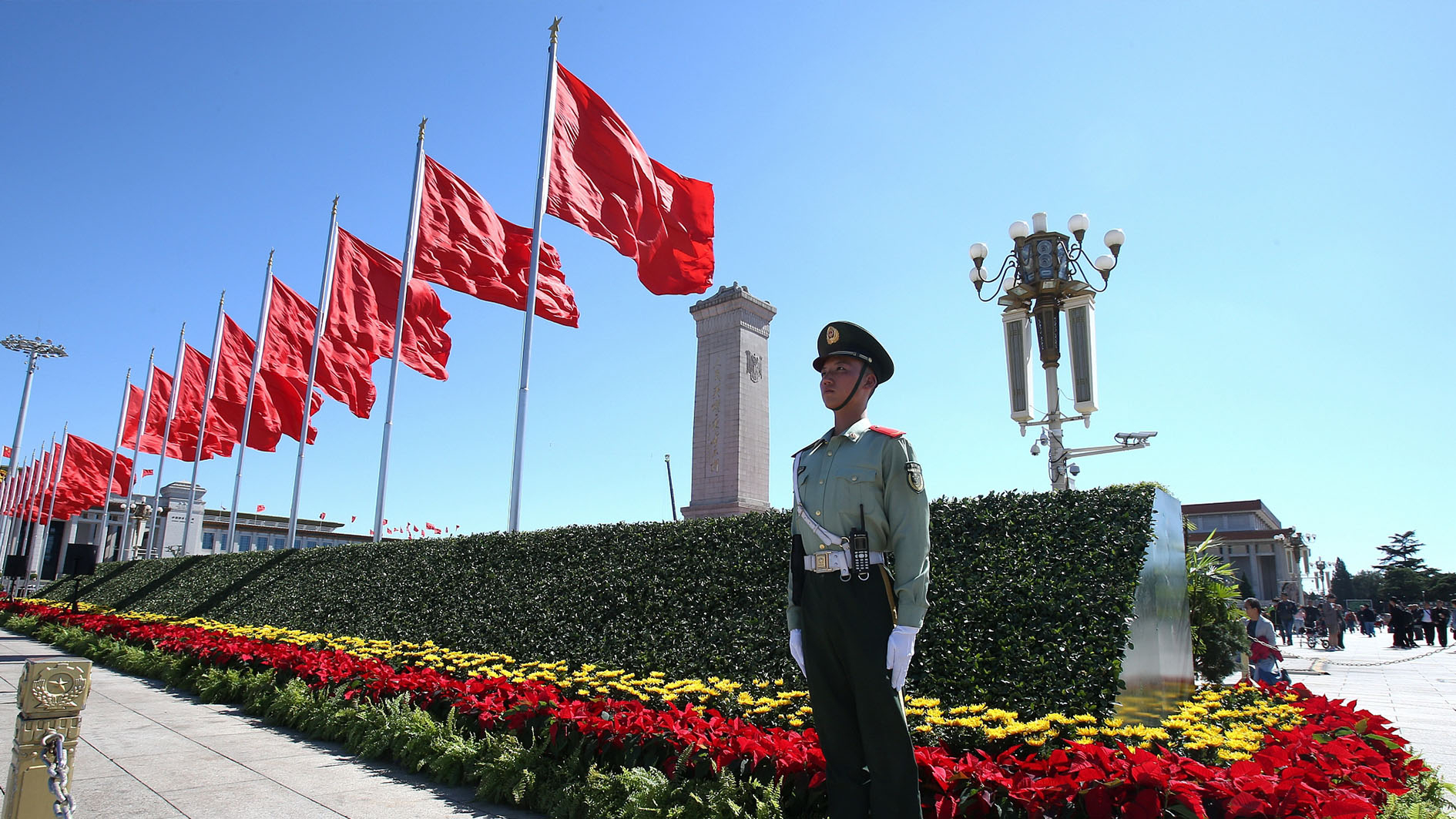
China's leaders attended a ceremony to commemorate the fifth Martyrs' Day on Sunday.
The leaders, together with representatives from all walks of life, presented flowers to the people's heroes in Tian'anmen Square, Beijing.
Martyrs' Day, which comes just one day before China's National Day on October 1, was also the day when foundations were laid for the Monument to the People's Heroes in 1949, which stands in the southern part of Tian'anmen Square.
It is one of China's three annual national memorial days, the others being "Victory Day of the Chinese People's War of Resistance Against Japanese Aggression" on September 3 and "National Memorial Day for Nanjing Massacre Victims" on December 13.
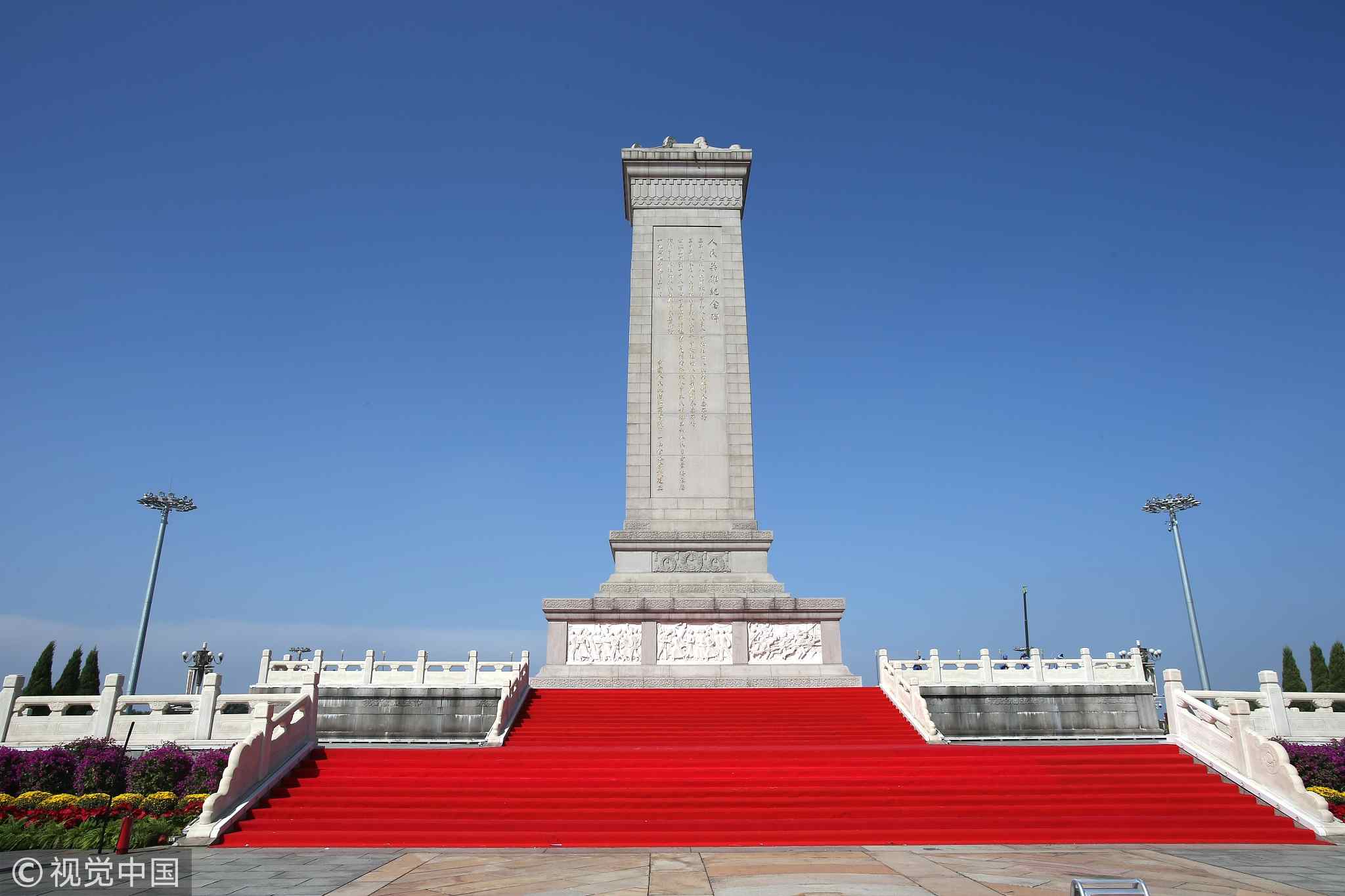
A red carpet is laid on the steps of the Monument to the People's Heroes in Beijing's Tian'anmen Square, September 29, 2018. /VCG Photo
A red carpet is laid on the steps of the Monument to the People's Heroes in Beijing's Tian'anmen Square, September 29, 2018. /VCG Photo
Definition of 'martyr'
Those remembered on Martyrs' Day are defined by the government as "people who sacrificed their lives for national independence and prosperity, as well as the welfare of the people in modern times, or after First Opium War (1840-1842)."
In 2014, China's legislature approved September 30 as Martyrs' Day to commemorate those who lost their lives fighting for national causes.
The move to create the commemoration is aimed at "publicizing martyrs' achievements and spirits, and cultivating patriotism, collectivism, and socialist moralities so as to consolidate the Chinese nation's cohesiveness," the top legislature said when making the decision.
It is believed that China has about 20 million martyrs. However, as many of them did not leave their names in warring days, only 1.93 million martyrs have been enlisted in the government's directory. On average, about 300 more people are identified as martyrs each year.
The deceased will always be remembered
Shen Liangliang, a 29-year-old sergeant first class, was killed in a terrorist attack on May 31, 2016 in the northern Malian town of Gao.
It was during the night when a car carrying more than 500 kilograms of explosives entered the United Nations camp where Shen was stationed.
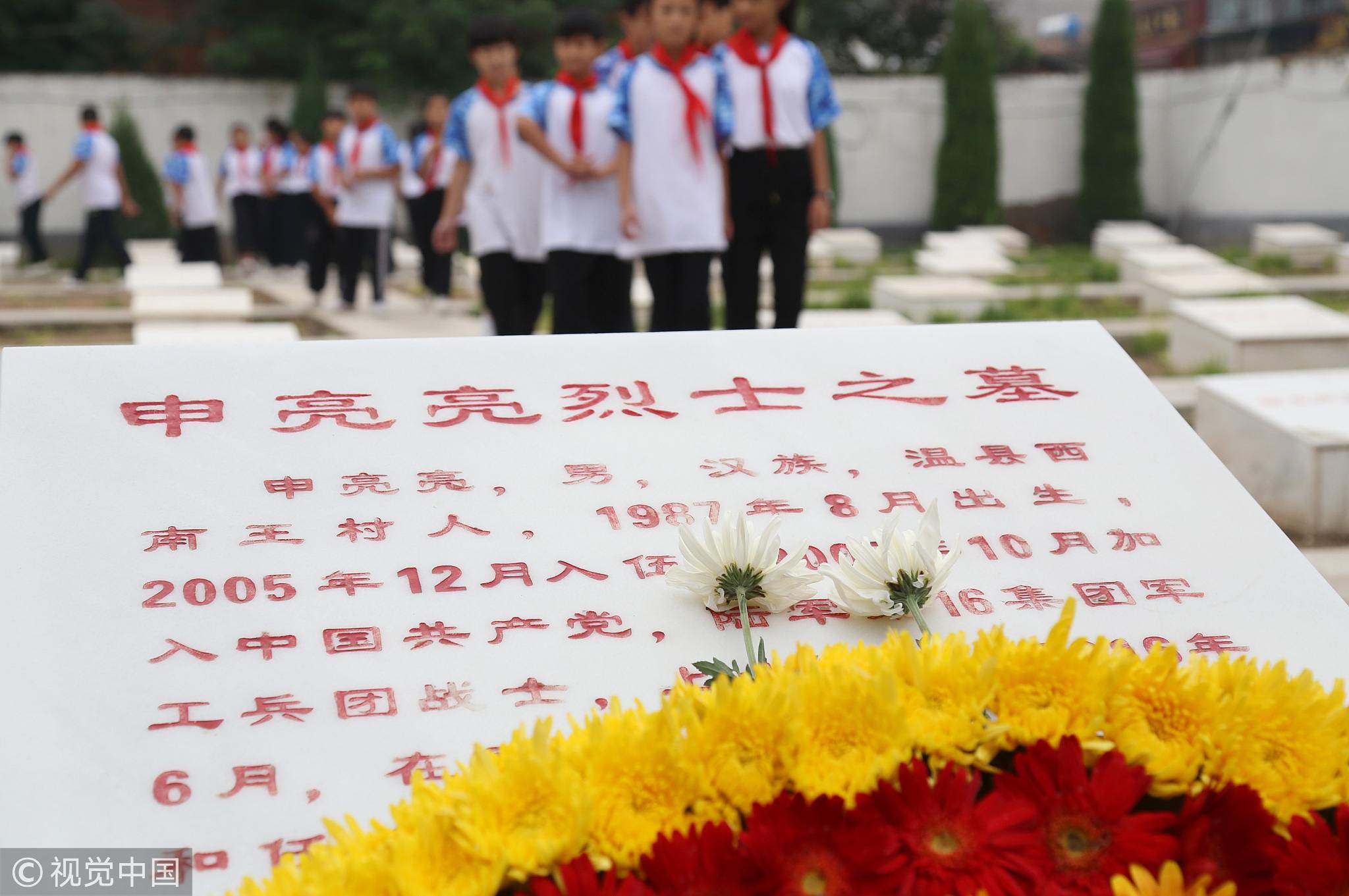
Students leave flowers at Shen Liangliang's grave on September 30, 2016. /VCG Photo
Students leave flowers at Shen Liangliang's grave on September 30, 2016. /VCG Photo
Shen, who was on duty as a guard, immediately issued an early warning signal.
At the last moment, Shen could have chosen to evacuate, but he stayed in order to guarantee the safety of his colleagues at the expense of his own life.
Yang Jungang, captain of the investigation team in southwest China's Yunnan Province, was shot on March 7, 2016.
The 39-year-old armed police officer sacrificed his life while chasing a drug dealer.
Yang remained concerned about whether the suspect was caught or not while his colleagues were giving him emergency treatment.
"Arrest or not?" were Yang's last words.
The stories of these martyrs, along with millions more, will always be remembered by the Chinese people.
China has about one million martyrs' graves, and another 29,000 facilities commemorating martyrs administered and protected by a national system.
Over 170 further facilities commemorating Chinese martyrs are located in 22 countries and regions around the world.
Effective ways to respect martyrs
China has a long tradition of commemorating and honoring martyrs and other heroes who contributed greatly to the nation's development. About 150 million people visit martyrs' graves every year, and films, TV series, and books about martyrs' achievements are popular.
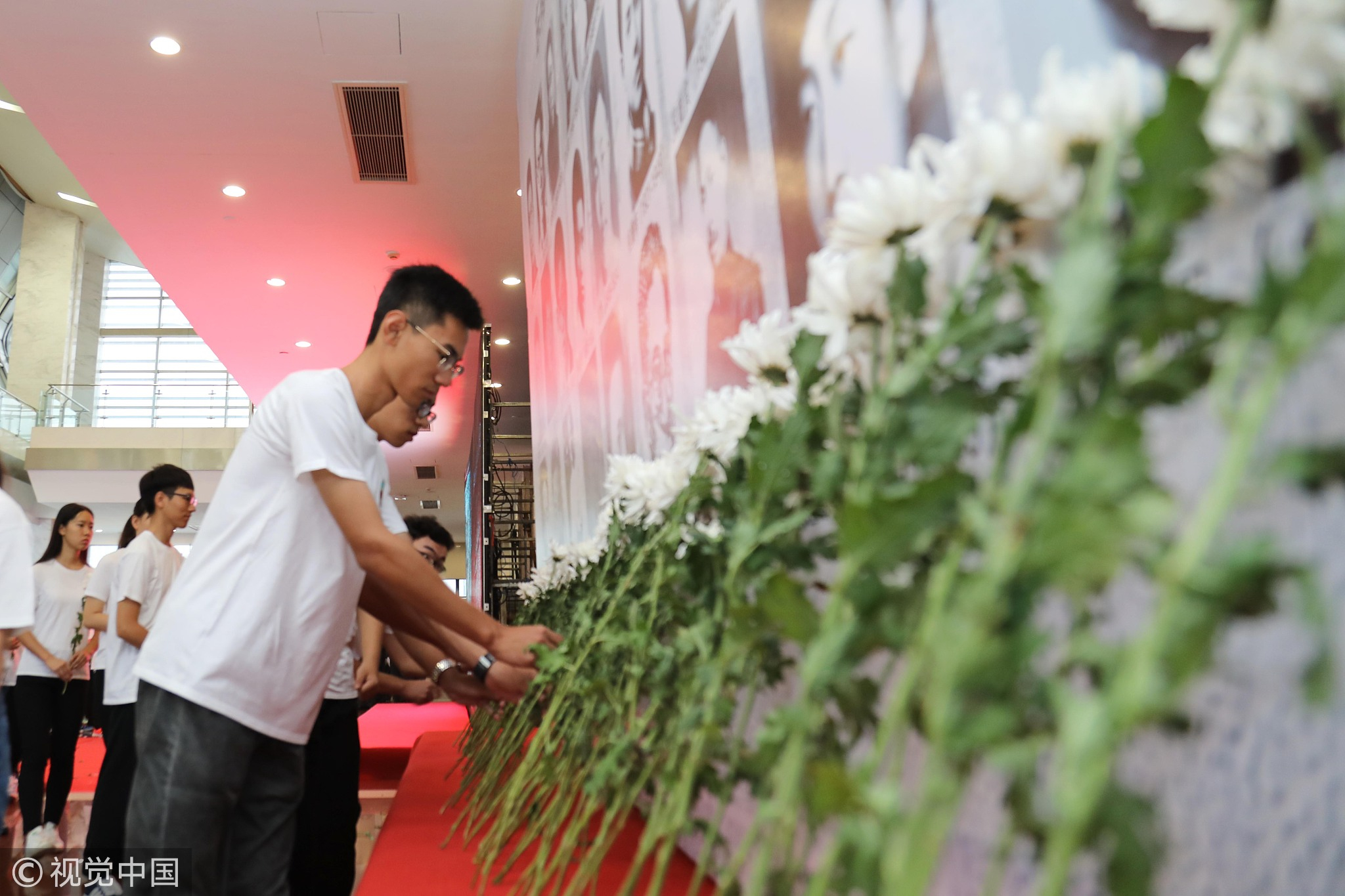
Commemorative activities are held across China to mark National Martyrs' Day, September 30, 2017. /VCG Photo
Commemorative activities are held across China to mark National Martyrs' Day, September 30, 2017. /VCG Photo
To better protect the reputation and honor of heroes and martyrs, China's top legislature passed a new law in April this year.
The law is aimed at promoting patriotism and socialist core values, bans activities that defame heroes and martyrs or to distort and diminish their deeds.
It also outlaws acts to glorify invasions, with offenders facing administrative or criminal punishments according to the severity of their actions.
Regulations have also been established to take better care of the offspring of the martyrs.
Earlier this year, China's Ministry of Culture launched an administrative crackdown on the spoofing of heroes and martyrs, ordering the deletion of 60,000 online videos, erasing up to 17,000 relevant contents and deleting 8,030 illegal accounts.
Support martyrs' families
The central government has issued regulations to protect facilities commemorating martyrs and increased pensions for martyrs' families 28 times since 1978.
The Ministry of Civil Affairs said about 200,000 martyrs' families now benefit from the government's pensions. Each family can receive 25,440 yuan (3,700 US dollars) every year.
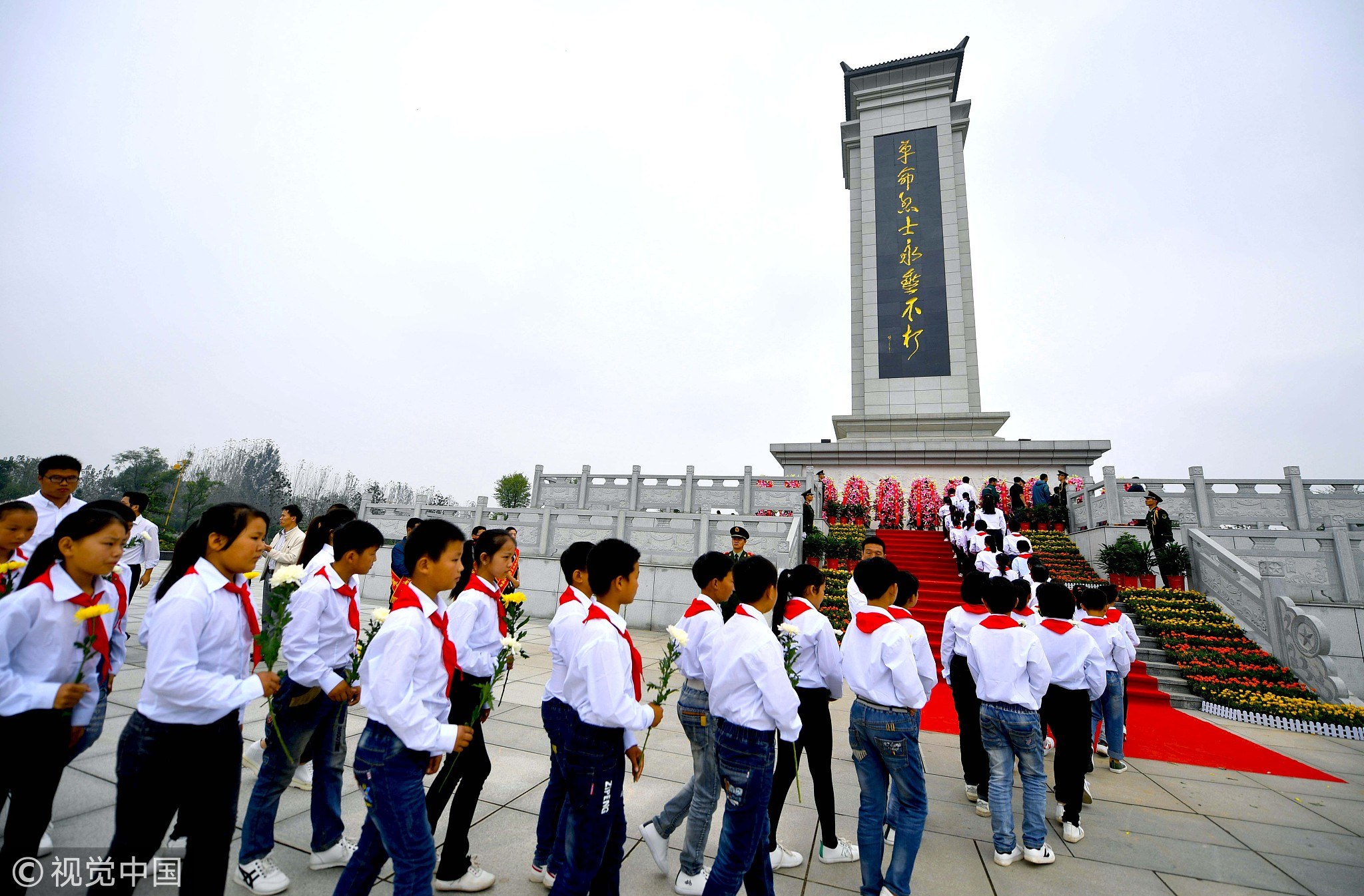
Commemorative activities are held across China to mark National Martyrs' Day, September 30, 2017. /VCG Photo
Commemorative activities are held across China to mark National Martyrs' Day, September 30, 2017. /VCG Photo
They also enjoy preferential policies in education, employment, and other fields.
(With input from Xinhua)

SITEMAP
Copyright © 2018 CGTN. Beijing ICP prepared NO.16065310-3
Copyright © 2018 CGTN. Beijing ICP prepared NO.16065310-3